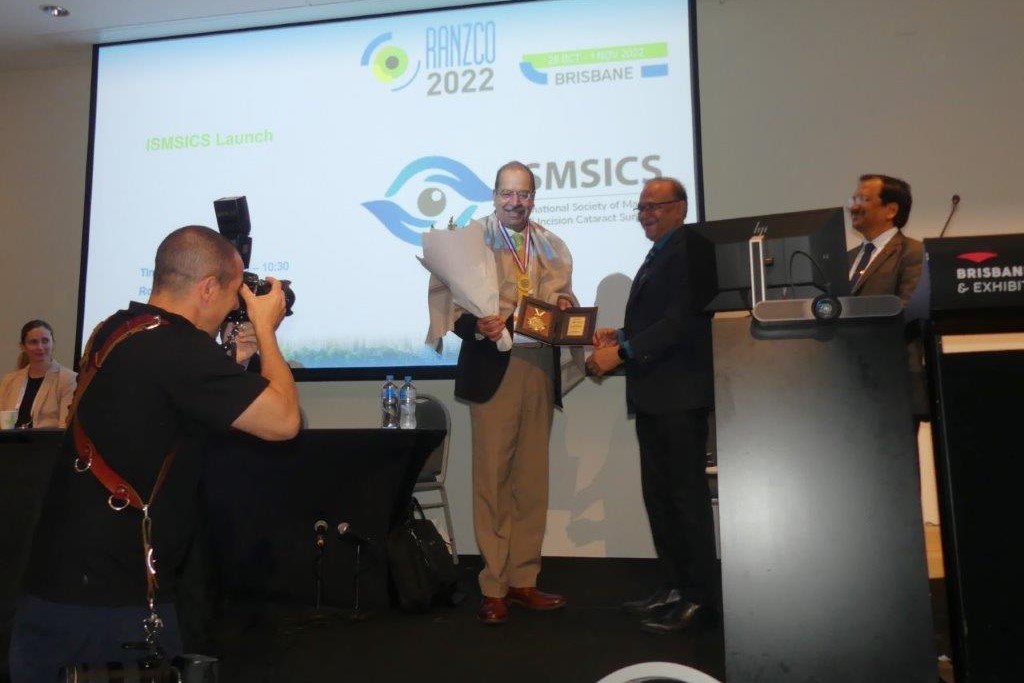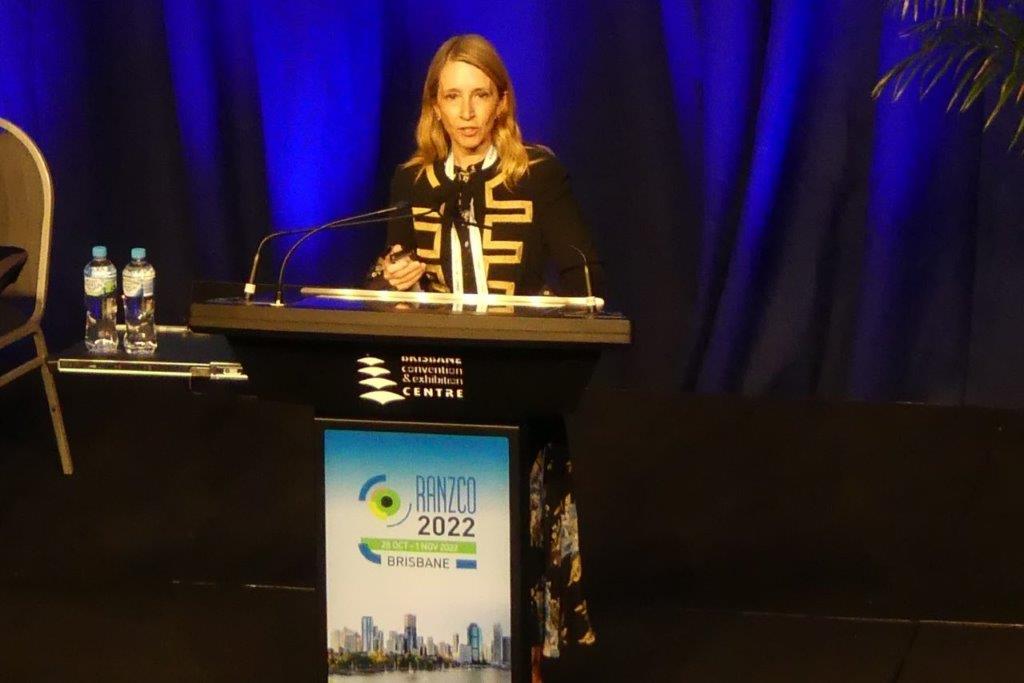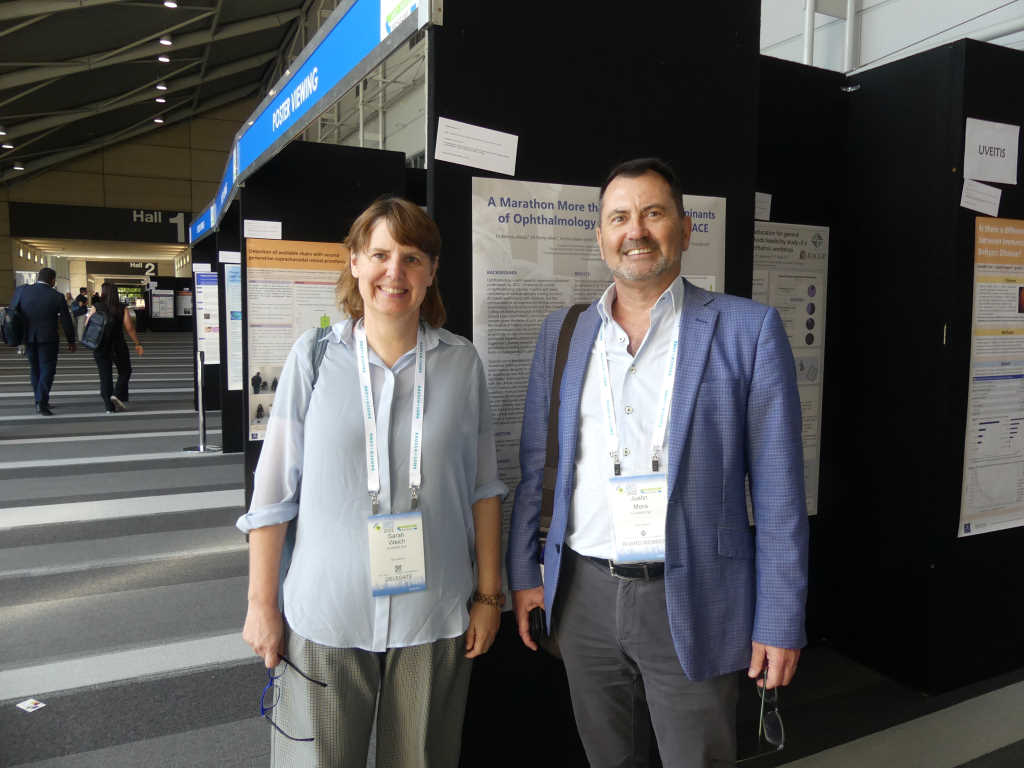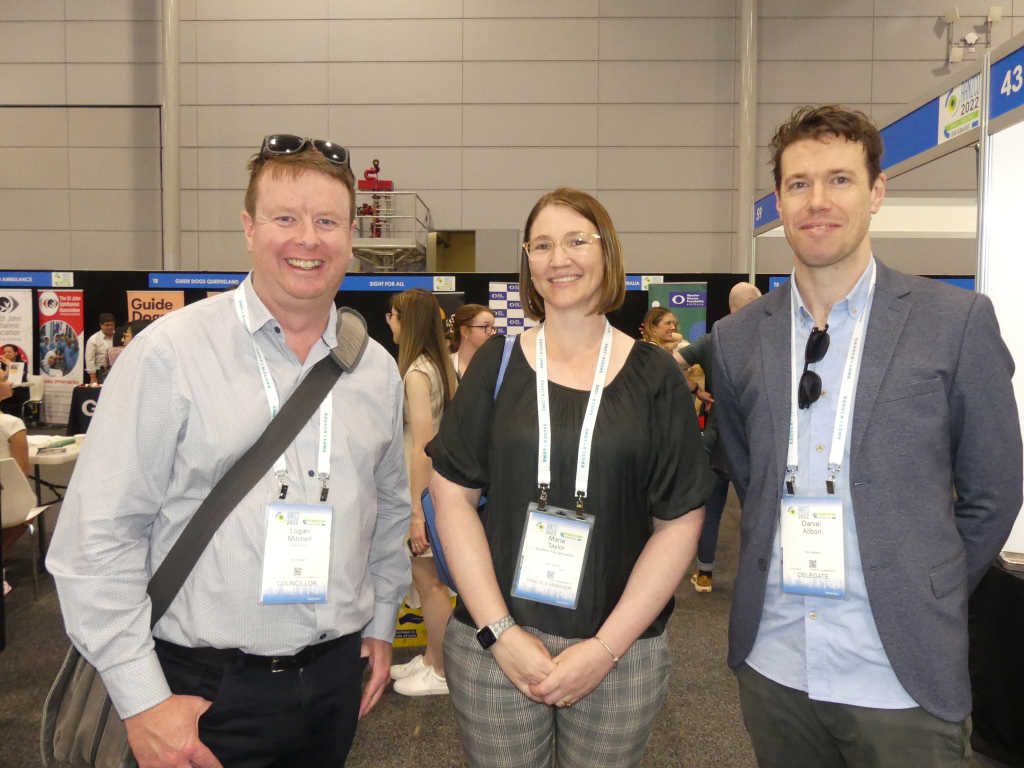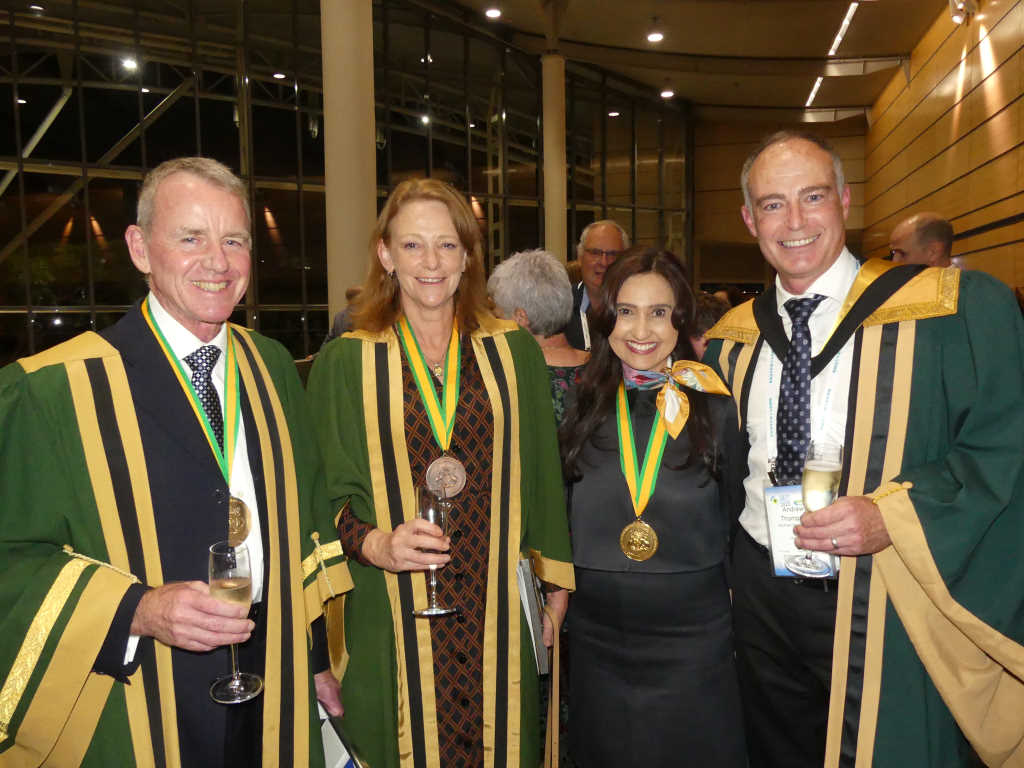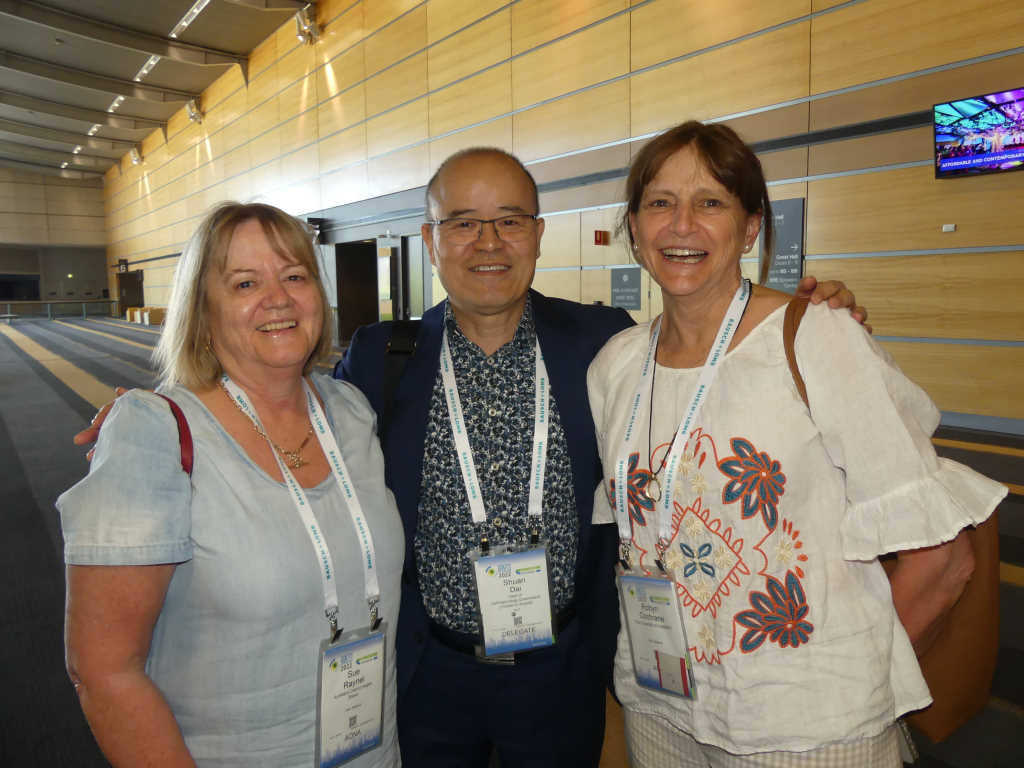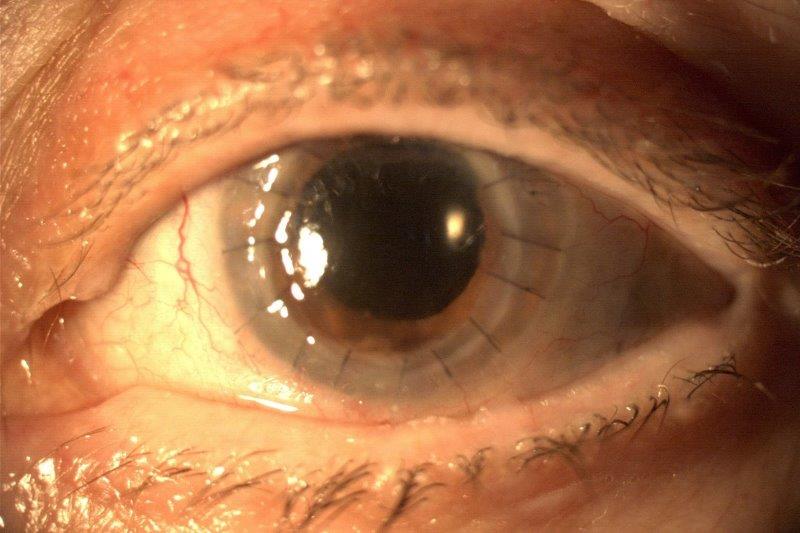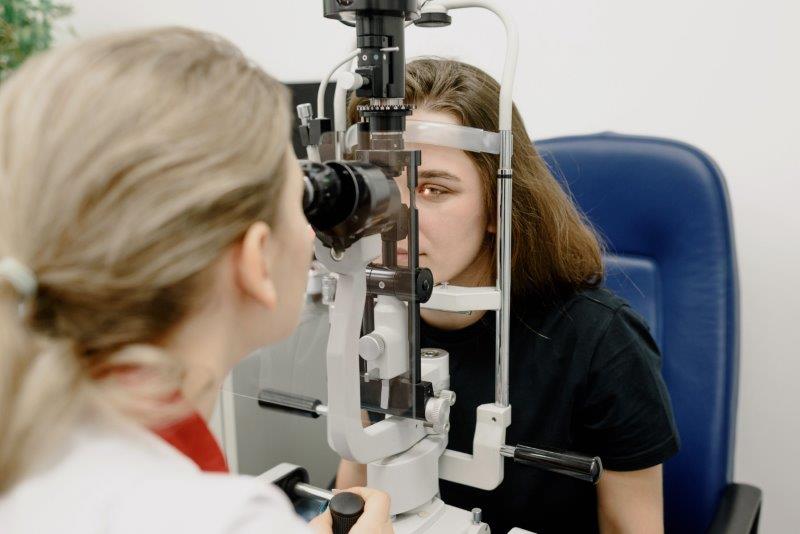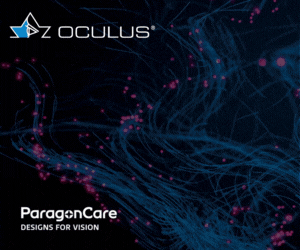ANZ chapter for small incision cataract surgery
Amid much hand-shaking and gift-sharing, senior members of the International Society for Manual Small Incision Cataract Surgery (ISMSICS) officially welcomed Australia and New Zealand (ANZ) into the fold at RANZCO’s 53rd Congress in Brisbane.
Manual small incision cataract surgery (MSICS) is the most commonly carried out cataract surgery in the world, said RANZCO president Professor Nitin Verma at the launch of the ANZ chapter, adding though it’s used more in other parts of the world, it’s important all ophthalmologists know there’s more than one way to remove a cataract!
Based in Mumbai, ISMSICS’ aim is to foster the spread of knowledge about MSICS to help deliver a cataract-free world and enhance people’s quality of life whatever their social or economic status. Both phacoemulsification and MSICS have witnessed major advances over the past two decades, according to the company’s website. “In fact, MSICS presented more variations in techniques compared to phacoemulsification.” Despite the learning curve for MSICS being similar to phaco, training programmes are few, so ISMSICS was conceived to bridge this gap, it said. “Surgeons, especially those from underdeveloped and developing countries, always felt left out in machine-dominated cataract surgery. With ISMSICS these surgeons can give expression to their aspirations and achievements.”
Now a global society, ISMSICS has chapters in 16 countries, including Australia and New Zealand. Prof Verma encouraged RANZCO fellows and trainees to get involved. “This exciting development paves the way for fellows and trainees, as well as colleagues from the surrounding South and Western Pacific countries, to engage with this expert group,” he said. “It is important for all of us to be familiar with MSICS so it can be used when the situation requires it. Phacoemulsification is not always an available or appropriate course of action for cataract surgery – factors like advanced pathology, geographic location, the availability of facilities and comorbidities add layers of complexity. Adding MSICS to your surgery toolkit can ensure there is a good outcome for the patient, regardless of the type of patient and their cataract.”










